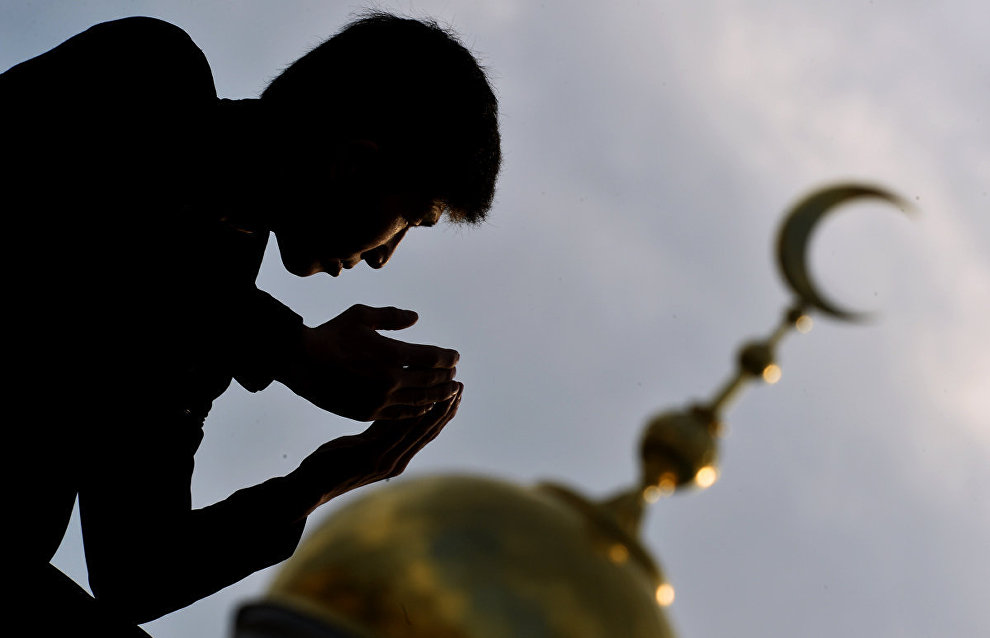Polar day and its problems, or life for Arctic Muslims during Ramadhan
Ali from Kiruna
For example, Ali Mehlem, 45, is a resident of the polar town of Kiruna in Sweden. His way of life differs from that of other residents in one small way: he must fast during the Holy Month of Ramadhan and can take food only after sunset, which is difficult considering the fact that the sun never sets at Kiruna in summer.
His family consulted with spiritual leaders from Iraq and Iran and they advised to put the fast off until autumn, islamnews.ru reports.
"The scholars are divided," said Omar Mustafa, who heads the Muslim Association of Sweden. "Sunni scholars say that during polar day fasting should be synchronized with Mecca time."
The same problem faces Muslims in Finland. The local imam, Abul Manan, says that the scholars from the Al-Azhar Center in Egypt recommended to Muslims in countries with a 18-hour light day to fast in line with Mecca time, Medina time, or the time in the nearest Muslim country.
Saudi ulemas keep to stricter rules and insist that the faithful should abide by local time, without specifying when they can eat if the sun hangs above the horizon for a number of weeks.
The Month of Ramadhan is the most important Muslim period of fasting that lasts for 29 or 30 days, while the start date shifts in accordance with a specific calendar system. Throughout this month, the faithful abstain from food, drink, smoking and sex from sunrise to sunset. Fasting is a test of will and penitence for sins.
Petrozavodsk is not lagging behind
Muslims are faced with the same problem in Russian polar cities and address it in their own way, albeit within dogmas. In Petrozavodsk, the sun sets at midnight and is back up at two in the morning.
This means the faithful have two hours to reach a mosque, perform the rites, come back home and take food, ansar.ru reports. Far from all are up to the task and so they turned to the fatwas (legal opinions by Islamic theologians).
A spokesperson for the Spiritual Administration of the Muslims of Karelia, Mariam Kovalyova, explained that there were several fatwas on this issue. The most popular ones recommend abiding by the namaz schedule of Holy Mecca or the schedule accepted in the longitudinally nearest city with clear signs of night.
The Spiritual Administration decided to choose the latter option, with Simferopol picked as the nearest city "with night." So, during this Month of Ramadhan, Muslims in Karelia perform iftar (eating after sunset) around 10 pm and get up for morning prayer at 4 am. These fatwas are also respected by the Muslims in Murmansk, a city to the north of Petrozavodsk.
What it costs to build a mosque in the Arctic
Muslims suffer even as they do noble things directly related to Islam. For example, the first mosque for 100 persons was opened at Nunavut, Canada, in the spring of 2016. Construction work was done during the Holy Month of Ramadhan as well. The construction workers, though engaged in hard physical work, could not even have a drink of water during the polar day, islam.ru reports.
"When you are used to fasting, 22 or 23 hours don't seem so tough. It becomes a habit and you don't notice it anymore," Syed Asif Ali, President of the Islamic Society of Nunavut, explained.
In Inuvik, Canada, daylight lasts for 24 hours, islam.ru reports. Because of the 9-hour time lag, they cannot use Mecca time, as days would become nights and vice versa. But local Muslims fast for as long as Mecca residents do and pray at the same time intervals.
It's no easier in the south
But it may be more comfortable to observe the Ramadhan fast in the Arctic than in hot countries. Despite the cold and perpetual daylight for long periods in the north, Muslims are much worse off in the south. In Pakistan last July, several factors combined to bring about tragic consequences. Temperatures reaching 42 degrees Celsius, fasting, blackouts and poor living conditions led to 65,000 people suffering sun and heat stroke; 1,300 people died.
Arctic Muslims may not have it so bad, despite the scheduling mess.
